Former Bolivian President Evo Morales left the country Monday amid worsening political violence in the aftermath of disputed elections.
Morales accepted an offer of political asylum from Mexico after resigning Sunday amid allegations of “serious irregularities” during last month’s election, and pressure from the country’s armed forces.
Morales faced mounting protests in the aftermath of the October 20 vote as demonstrators and the Bolivian opposition accused electoral authorities of manipulating the vote count in favor of the incumbent.
He denied the allegations and declared himself the winner, but was eventually forced to step down before leaving the country.
How did it come to this?
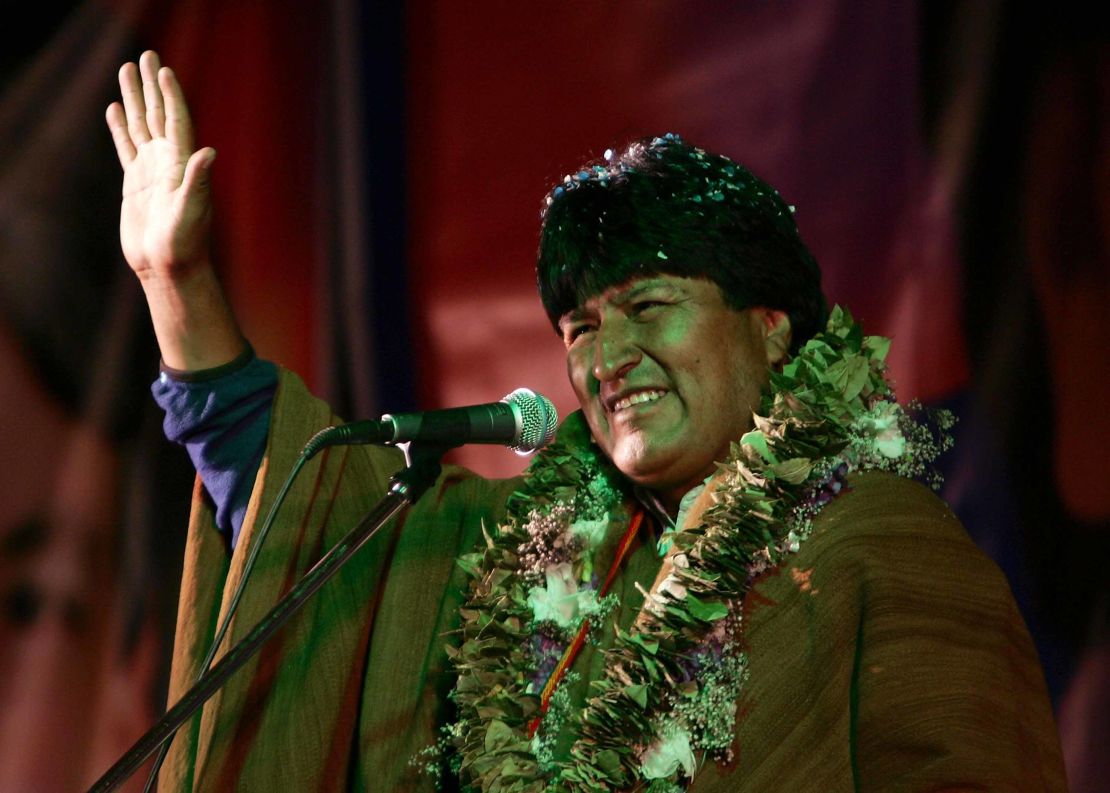
In the hours after polls closed, preliminary results showed Morales slightly ahead of his opponent, former President Carlos Mesa.
But the opposition and international observers became suspicious after election officials stopped the count for about 24 hours without an explanation. When the count resumed, Morales’ lead had jumped significantly.
Related: Bolivian President Evo Morales steps down
Electoral monitors from the Organization of American States (OAS) published a report Sunday alleging irregularities that impacted the official vote count.
In the aftermath of the report, Morales initially promised new elections would be held and the country’s electoral council replaced.
However just hours later the president had resigned after the head of the Bolivian Armed Forces, Cmdr. Williams Kaliman, asked Morales to step down in order to restore peace and stability.
What about the coup allegations?
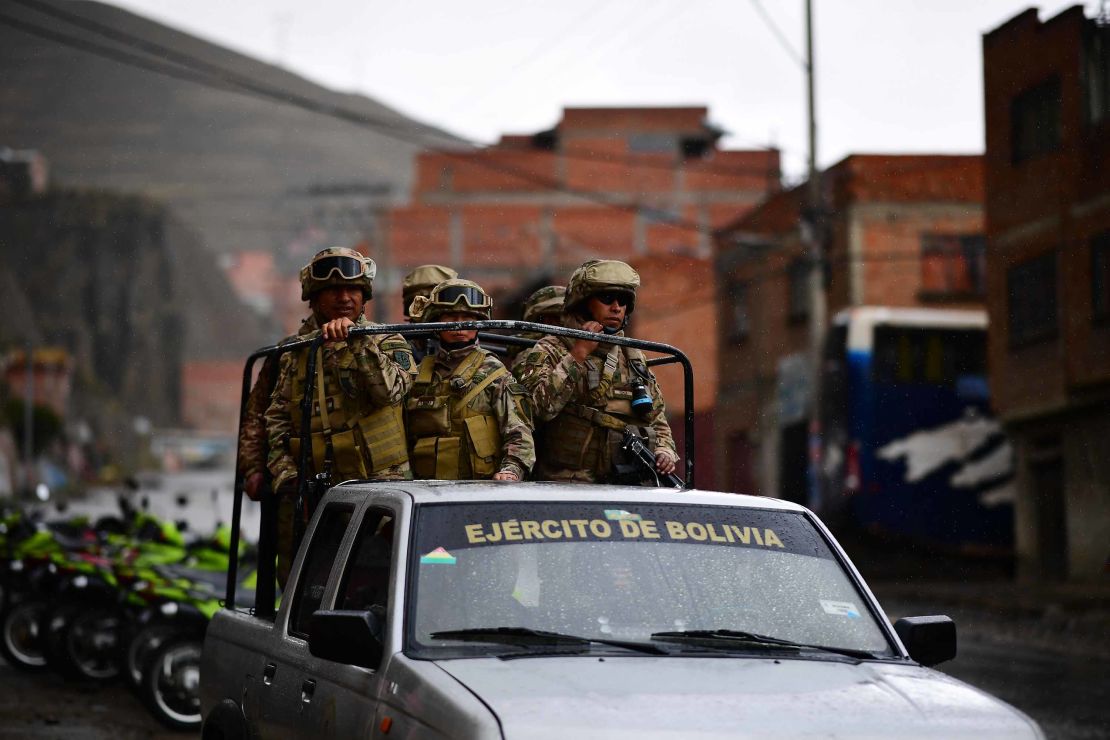
Morales said he’d been forced out in a coup – a charge echoed by his allies in Latin America, including Venezuelan President Nicolas Maduro, Cuban President Miguel Díaz-Canel Bermúdez, and Argentinian President-elect Alberto Fernández.
However the opposition movement denied the claims and said this was a fight for “democracy and peace.”
The US State Department is monitoring the “quickly unfolding events” in Bolivia, a US State Department spokesperson said.
Earlier, US Secretary of State Mike Pompeo commended the OAS audit and said the United States supported the new election and the installation of a new electoral council.
However, analysis by the Center for Economic and Policy Research, another US-based think tank, has cast doubt on the OAS findings, and warned against what it called “the politicization of the electoral observation process.”
Who is running Bolivia right now?
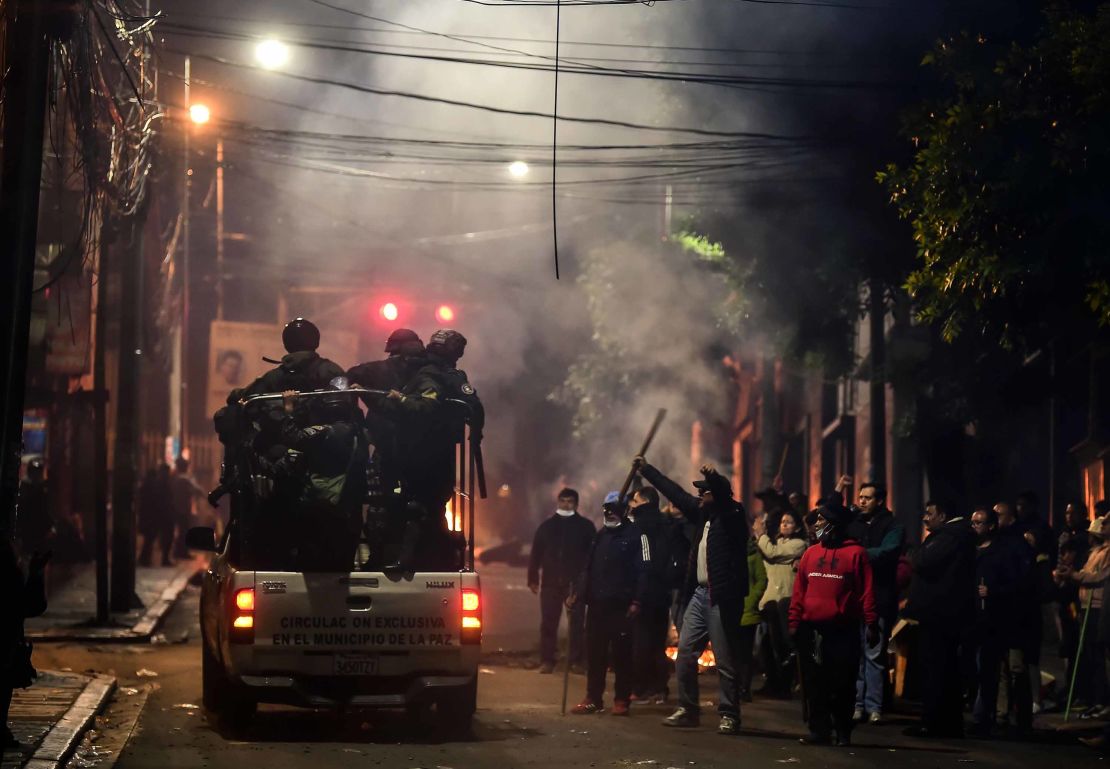
It is not clear who is in charge of the country following Morales’ resignation.
However, the former President called on former election opponent Carlos Mesa and opposition leader Luis Fernando Camacho to “pacify” Bolivia.
“They should stand up to their responsibility to pacify the country, and guarantee political stability and peaceful coexistence for our people,” Morales wrote in a tweet Monday.
Bolivia’s Defense Minister Javier Zavaleta López announced his resignation Monday, addressing opposition leaders in a video posted on the ministry Twitter account.
“Mr. Carlos Mesa, Mr. Fernando Camacho: a political issue is not resolved by increasing the caliber of repression,” he said.
“Bullets are not the answer or the solution to a problem. Politics are ideas against ideas, and not the exchange of bullets.”
Mesa expressed hope of forming a new government on Monday after Bolivian armed forces announced “joint operations” with police, in order to “avoid blood and grief.”
He called on Bolivians to “not harass” security forces because “without them there is no new government” in an interview with CNN en Español.
Gen. Vladimir Calderón, the head of Bolivia’s national police, said at a Monday press conference that the joint operation “will end when peace is established throughout the Bolivian people.” He said police units had “been burned and looted.”
According to Ivan Briscoe, Latin America and Caribbean program director at Crisis Group, there is currently no civilian chain of command in Bolivia.
“We know de facto who is in charge in Bolivia: the military,” Briscoe told CNN.
Where are things headed?
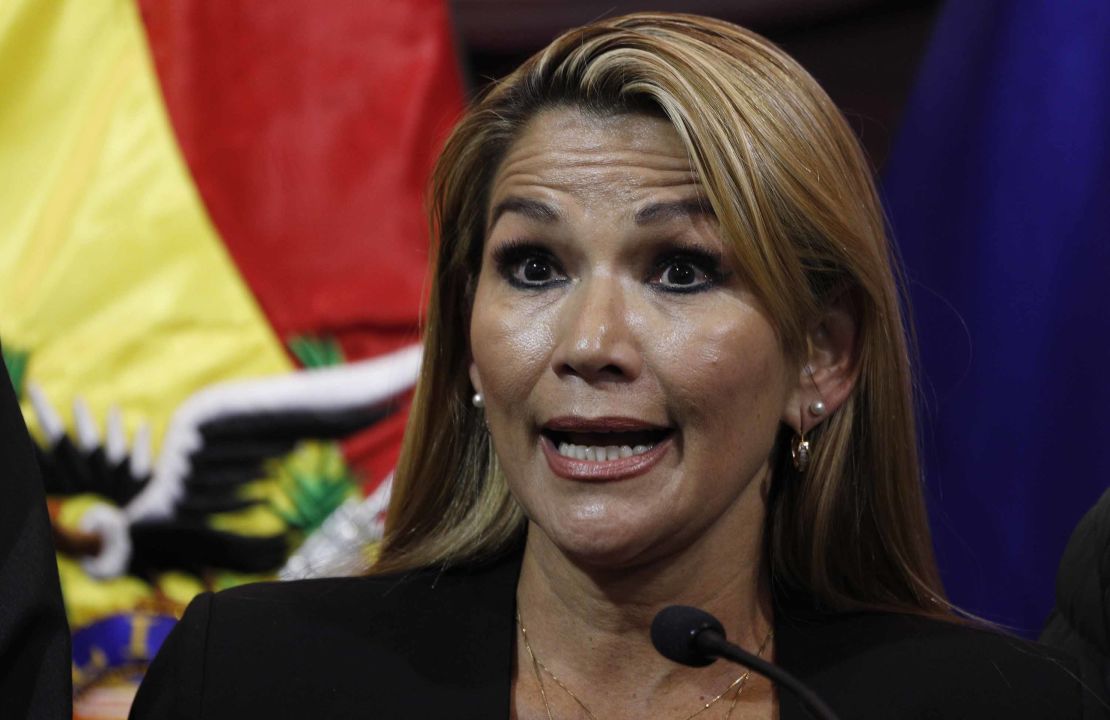
Morales left Bolivia for Mexico on Monday but tweeted that he would soon “return with more strength and energy.”
It is unclear who will be Bolivia’s next president. The officials who were next in the presidential line of succession all resigned on Sunday.
Related: In protests around the world, one image stands out
However the second vice president of Bolivia’s senate, Jeanine Añez, said that she is the next in line to assume the presidency, and is willing to do so.
Añez, an opposition lawmaker, said that she would assume the presidency with the objective of calling for new elections.
However it is not clear whether Añez would be able to take office given that she would not have enough support among lawmakers.
Añez called for an “extraordinary” assembly session for lawmakers to meet Tuesday at 4 p.m. (3 p.m. ET).
Camacho, who has become a key figure in the protest movement, could also play an important role in the future of the country.
It is unclear if Camacho will run in the next presidential elections but it is a possibility that political experts are already flagging.
Camacho leads the Committee Pro-Santa Cruz, a civic organization that promotes the “autonomy” of the Santa Cruz region, Bolivia’s economic powerhouse.
What does this mean for left-leaning politics in the region?
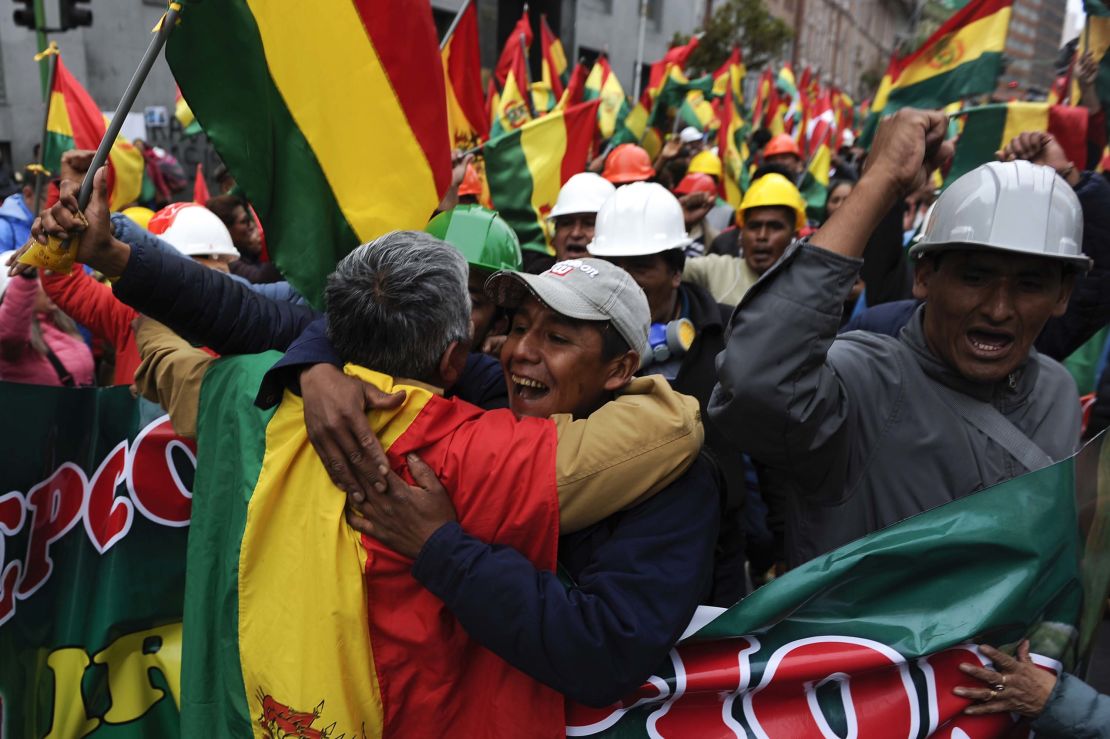
Morales came to power in 2006 as part of a wave of left-leaning governments known as the pink tide, all of which have now fallen.
“Morales was the last standing of the pink tide,” said Gunther Baumgarten, editor at consultancy firm LatinNews. “It’s definitely a blow.”
However Baumgarten points out the recent election victory of Alberto Fernández in Argentina as a sort of second wave of the pink tide.
“The left is not completely dead,” he said.
For Briscoe this is the latest episode in political upheaval that has affected governments from across the political spectrum.
There are ongoing protests against the conservative government in Chile, and a center-right government in Ecuador also had to scrap reforms in the face of recent protests. At the same time, the leftist government in Venezuela has been dealing with mass demonstrations for years as it clings to power.
“It doesn’t show that there’s a sustained move to the right,” said Briscoe. “Both right and left are taking flak from citizens.”





